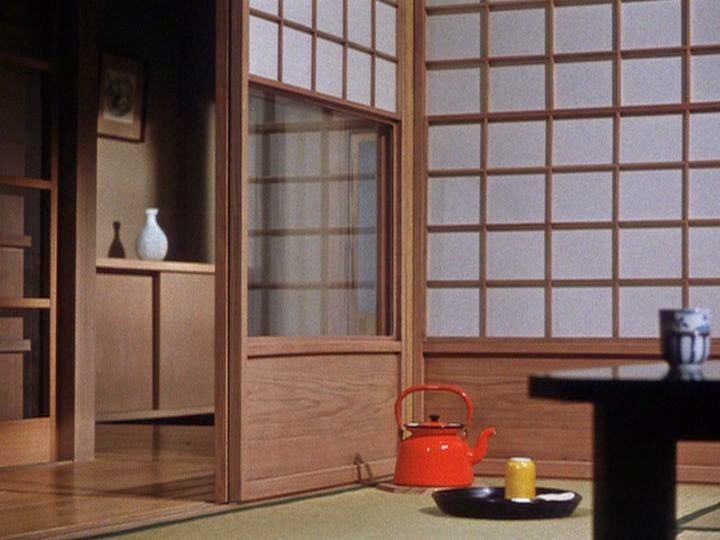
Later in his career, Ozu started becoming increasingly sympathetic with the younger generation, a shift that was cemented in Equinox Flower, his gorgeously detailed first color film, about an old-fashioned father and his newfangled daughter.
EN
“Equinox Flower is about a successful businessman and his attempts to cope with a daughter who defies an arranged marriage and runs off with a pianist. Ozu’s sympathy is never with one character over another; therefore ours cannot be either. Perhaps this is what makes his films, for all their designed tranquility, wrenching. Russell Merritt writes, ‘Ozu was one of the great precisionists and the exactness of Equinox Flower is apparent everywhere. [...] His fastidiousness is not just an assertion about the resources of the movies. It is also an idea about life.’ Nathaniel Dorsky notes, ‘Often the most intimate and poignant dialogue between two characters in an Ozu film is that between two women. In Equinox Flower, Ozu offers a progression of shots and cuts during a discussion between two women which dismantles time and space. There is no temporal reality; as a viewer you begin to float, you start to cry.’”
BAMPFA1
“Ozu’s first film made in color is both a delicate elegy and delectable comedy – the portrait of a domestic tyrant at odds with his liberated daughter, who shuns the idea of arranged marriage. A succession of quietly implosive epiphanies, Equinox Flower combines the director’s signature visual precision with color coding (with special use of Ozu’s favorite, red.) that underscores key elements of the environment. As the father is slowly won over, he sums up the director’s own sense of life’s capriciousness: ‘Everyone is inconsistent now and then, except God. Life is full of inconsistencies. The sum total of all the inconsistencies of life is life itself.’”
Harvard Film Archive2
“Social tensions also surface humorously in Equinox Flower when Mr. Hirayama takes one of his subordinates to the bar not realising it is his subordinate’s regular haunt, and when the Osaka mother demonstrates her scheming social aspirations for her daughter. The Osaka mother is endured by the Hirayama family, a point clearly made through the ‘toilet’ humour associated with the woman. This is not the only film in which Ozu uses bodily function humour. [...] Ultimately Ozu’s films are observational. The Osaka woman may be the most annoying and irritating individual in Equinox Flower, yet she is not judged by the film. Hirayama, in his stubbornness towards his daughter and in excusing himself to escape another conversation with the Osaka woman demonstrates his human fallibility. Ozu easily identifies his characters faults, but he readily understands and forgives their foibles. Along with Renoir, he is one of the great humanists of the cinema.”
Michael Koller3
“Ozu’s aim, of course, is to reveal character and not to pass judgement on it. In Equinox Flower, although the father is clearly wrong in opposing the marriage of his daughter, Ozu presents him very sympathetically. Ozu’s characters are always human, possessing all the human frailties.”
Marvin Zeman4
- 1BAMPFA
- 2Harvard Film Archive
- 3Michael Koller, “Equinox Flower,” Senses of Cinema, 2018, nr. 86 (2018).
- 4Marvin Zeman, “The Serene Poet of Japanese Cinema: The Zen Artistry of Yasujiro Ozu,” The Film Journal vol. 1, 1972, nr. 3-4 (1972).

